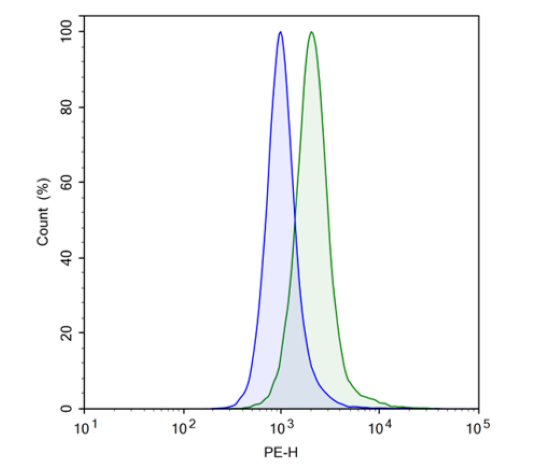DLL4 CHO Cell Line
DLL4 CHO Cell Line is a CHO-K1 cell line expressing human DLL4 (delta-like 4) (accession number NM_019074.2) under the control of the cytomegalovirus (CMV) promoter. This cell line was generated by lipid-mediated transfection followed by hygromycin selection and limiting dilution. Individual clones were screened for DLL4 expression by flow cytometry in order to obtain this DLL4 expressing cell line.
Purchase of this cell line is for research purposes only; commercial use requires a separate license. View the full terms and conditions.
Media Required for Cell Culture
| Name | Ordering Information |
| Thaw Medium 3 | BPS Bioscience #60186 |
| Growth Medium 3B | BPS Bioscience #79529 |
The cell line has been screened to confirm the absence of Mycoplasma species.
Notch signaling is an evolutionarily conserved pathway that plays a critical role in cell fate decisions and differentiation. A member of the Delta family of Notch ligands, DLL4 (delta-like 4) is a vascular transmembrane protein which signals through its corresponding receptors Notch1 and Notch4 and plays a critical role in embryonic development, where it is essential for both vascular development and T-cell specification. DLL4 expression is induced by both VEGF (vascular endothelial growth factor) and hypoxia. It plays an important role in blood vessel growth by regulating the differentiation of tip and stalk cells directing vascular sprouting. Early studies of the role of DLL4-Notch signaling in tumor angiogenesis demonstrated that inhibition of DLL4 decreased tumor growth. DLL4 is an attractive therapeutic target with several clinical trials of DLL4 inhibitors ongoing, including trials of bispecific antibodies targeting goth DLL4 and VEGF.
Benedito R., et al., 2009 Cell. 137(6):1124-35
Harrington L., et al., 2008 Microvasc Res. 75(2):144-54
Hoey T., et al., , 2009 Cell Stem Cell. 5(2):168-77
Hozumi K., et al., , 2008 J Exp Med. 205(11): 2507–2513
Scehnet J., et al., 2007 Blood. 109(11):4753-60
Williams C., et al., 2006 Blood. 107(3):931-9
You W.K., et al., 2023 Mol Cancer Ther 22 (1): 3–11


